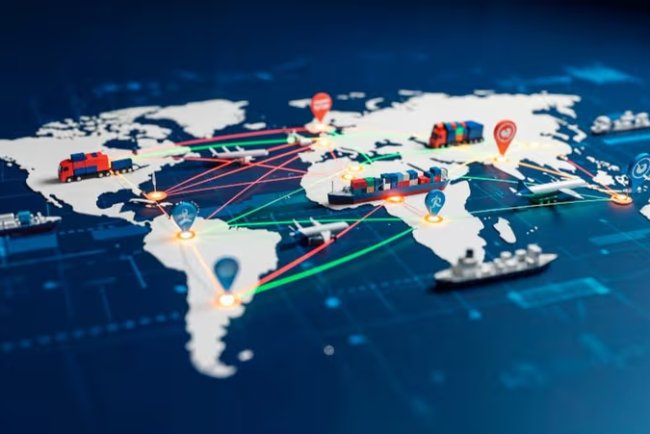Deep-Sea Mining: Contentious Rule Talks Underway in Jamaica
The International Seabed Authority (ISA) is holding critical negotiations in Jamaica from March 17, 2025, to discuss regulations for deep-sea mining. The talks involve 169 member nations debating how to balance economic opportunities from seabed minerals with the protection of fragile marine ecosystems. Environmentalists warn of irreversible damage, while mining companies push for commercial extraction, such as Canada’s Metals Company seeking a license in June 2025. Disputes over regulatory frameworks, profit-sharing, and environmental safeguards continue to delay progress, leaving the future of deep-sea mining uncertain. The outcome will shape global ocean conservation and resource extraction policies.

Global Stakeholders in Conflict Regarding Regulating Deep-Sea Mining in ISA Negotiations in Jamaica
Jamaica is hosting two weeks of back-to-back negotiations between 169 member nations of the International Seabed Authority (ISA) from March 17, 2025. The summit, the 30th ISA session, will address the contentious issue of regulating deep-sea mining alongside striking a balance between conserving the environment and economic aspirations.
The ISA is an independent international organization that governs the exploration and exploitation of deep seabed mineral resources. They are metals such as copper, nickel, cobalt, and rare earth minerals, which are being increasingly demanded by electric vehicle batteries and renewable energy production.
Though the ISA has been endeavoring to develop a code for mining that would ensure safety for the ocean's marine environment for decades, it has been highly controversial. What is under contention is balancing the promise of opening up deep-sea minerals' economic potential against the vulnerable ecosystems of the ocean floor's protection.
Environmental Concerns and Scientific Uncertainty
Deep-sea mining, or the mining of mineral deposits beneath the seafloor at depths greater than 200 meters, has been criticized on environmental grounds. The argument against is that it would mean permanent destruction of delicate marine life with no knowledge of the long-term effects on the environment. There have been threats from some environmental agencies that the mining will lead to the destruction of ecosystems, loss of biodiversity, and the flow of poisonous chemicals into the ocean.
Despite all the fears, pressure comes from the operators to carry on with excavating the valuable resources. Metals Company, Canada-based, will first apply for commercial mining licence in June 2025 by its subsidiary company NORI (Nauru Ocean Resources Inc.). The company wants to mine polymetallic nodules on the floor of the Pacific ocean.
But critics insist that, without a finalized mining code, there is insufficient regulation to ensure the protection of the seafloor environment. While negotiations continue, critics argue that it would take some time to craft a comprehensive mining code because over 2,000 aspects of the code are yet to be resolved. The urgency to initiate mining without rules only fuels the controversy of deep-sea mining.
Regulatory Framework and Profit Sharing
One of the most contentious issues in ISA negotiations is how to regulate a system to assess mining applications. As a requirement under the United Nations Convention on the Law of the Sea (UNCLOS), the ISA is required to oversee the exploration and mining of international waters' mineral resources with safeguards for the marine environment.
However, that it is impossible to come up with enough scientific information of the impacts of deep-sea mining on the environment makes it challenging to come up with legislation that will help protect the oceans. Environmental organizations have called for more studies to finally determine the possible impacts of the mining on marine life and the marine ecosystems.
Another area of dispute is profit sharing. Most nations, and specifically the African nations, have pushed for higher royalties on the resources mined from the international seabed. The calls for more money are in connection with the broader dispute of more proportionate distribution of the resources. Developing nations are calling for more income from the mining activities since they argue the economic benefits are to be shared more proportionately.
Uncertainty and Delays in the Process
The ISA regulatory process has been prioritization-challenged with numerous disagreements among member nations, mining firms, and environmentalists. The complexity of the issue and varying stakes' priorities have made consensus among the mining code terms difficult.
Lack of visibility into the decision-making process has also led to frustration among environmentalists, who are asserting that lack of transparency could lead to putting economic interests above safeguarding the environment. Some countries are requesting greater control and accountability, but others are seeking a faster track to allow for mining to start in the near term.
As negotiations go on, the fate of deep-sea mining is unclear. It all depends on it, with the potential to revolutionize the world economy in the access to vital minerals, but at a price paid in uncertainty of its impact on the environment.
Conclusion
The current talks in Jamaica represent a turning point for the evolution of rules on deep-sea mining. The success or failure of the talks has enormous stakes for future ocean conservation and for the world economy. The middle ground is one that enables sustainable harvesting of mineral resources and leaves healthy marine ecosystems for future generations.
Since the negotiations are in progress, it remains to be seen if the ISA will be able to create a mining code that balances the environmental aspect and the economic value of deep-sea mineral resources.
What's Your Reaction?

















